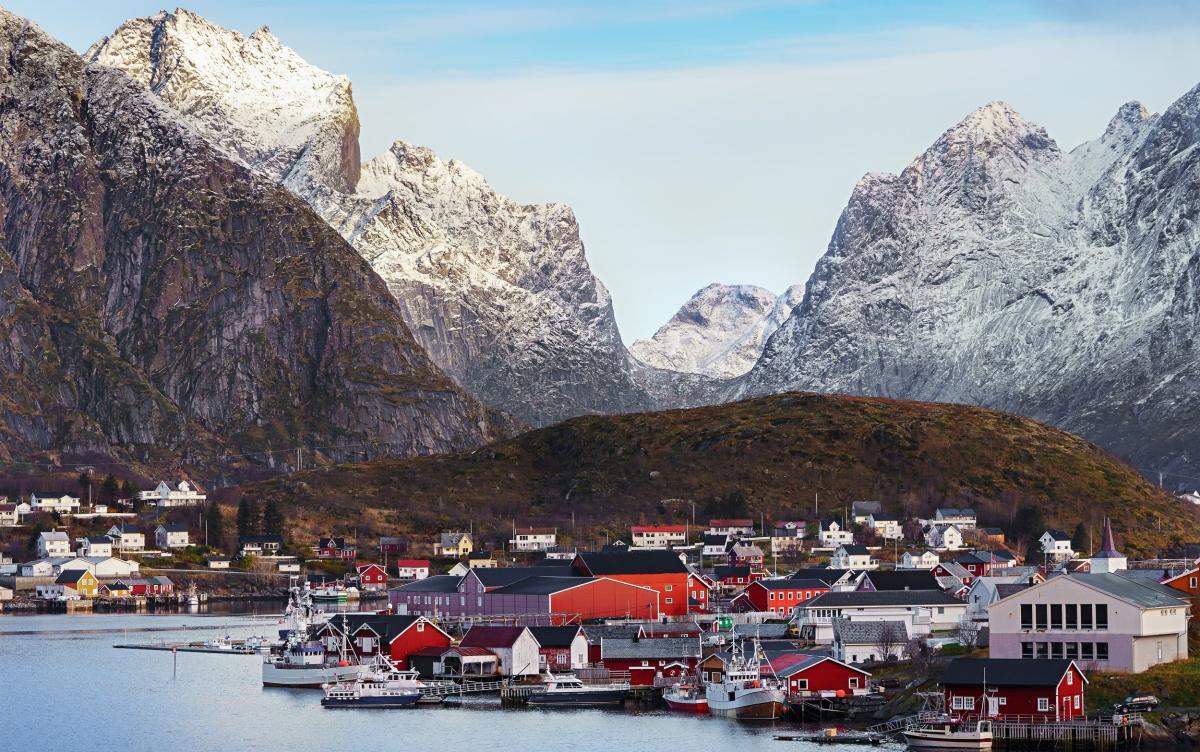Norway – Natnan Srisuwan/Moment RF
“A difficult choice has been made. I’ve moved from Asker, Norway, to Lugano in Switzerland,” Norway’s biggest taxpayer, and the largest shareholder of investment firm Aker ASA, Kjell Inge Røkke wrote to the rest of the board in an open letter last September.
Mr Røkke, an industrial tycoon with an estimated net worth of Nkr 19.6bn (£1.5bn), is among 50 billionaires and millionaires to have left Norway over the past year as they were hit with higher rates of wealth tax.
Record numbers of the country’s richest residents have fled since the Labour-centre coalition increased wealth tax rates by 0.1 percentage points, costing the government tens of millions in lost tax revenue. The 50 high earners, with a combined net worth of more than Nkr 40bn (£3bn), make up more than the total number who have left the country for Switzerland since 2009, according to Norwegian newspaper Dagens Naeringsliv.
It is expected that even more wealthy Norwegians will leave because of the tax raid which kicked in last November.
The exodus from Norway, which is one of just four in the OECD to still impose a wealth tax, may be noticed by the Treasury as Labour discusses ways to make the rich pay more tax in the UK. Sir Keir Starmer is believed to be considering various forms of wealth taxation – including a capital gains tax raid and a removal of various tax-free exemptions for the rich, should Labour win the next election.
Norway’s wealth tax has long been a thorn in the side of the country’s super-rich. It is one of only a handful of OECD countries to impose a wealth tax on the global net worth of its citizens – defined as total assets minus total debt.
In 1990, 12 OECD countries, all in Europe, levied wealth taxes. However, most of them repealed these in the 1990s and 2000s due to growing fears that in a globalised world the wealthy would simply take their riches elsewhere. France was the last to scrap its wealth tax in 2017, after losing an estimated 60,000 millionaires between 2000 and 2016, according to research by intelligence firm New World Wealth.
Now the only European countries to levy a wealth tax are Norway, Spain and Switzerland.
This is despite the fact that wealth taxes raise surprisingly little for the government. Only a tiny proportion of Norway’s tax take – about 1pc, according to the OECD – comes from wealth taxes. Dan Neidle of Tax Policy Associates, a non-profit, said: “Norway is probably the developed country with the most significant wealth tax, but it’s still not very significant.”
This is in part due to discounts that apply to primary residence and unlisted shares.
Mr Neidle said these rules have some “weirdly distortive effects” on behaviour. “That creates an incentive to avoid listing your business, and put as much of your net worth into your house as possible. These are not great outcomes from a policy perspective.”
Under Norway’s tax policy, an individual with worldwide net wealth above Nkr 1.7m (£130,000) is taxed at 1pc on everything above this threshold. Of this tax take, 0.3pc goes to the state and the remaining 0.7pc goes to the person’s municipality. Those with over Nkr 20m (£1.5m) pay a rate of 1.1pc. This extra 0.1pc goes to the state.
Mr Røkke did not give any financial reasons for the move, adding that although Lugano is “neither the cheapest nor has the lowest taxes” it is “a great place with a central location in Europe”.
Other wealthy individuals who have recently abandoned Norway include Tore Ivar Slettemoen, co-founder of battery company Feyr, and Ninja Tollefsen, daughter of property investor Ivar Tollefsen. Fredrik Haga, 31-year-old co-founder of cryptocurrency data business Dune, has also gone to Switzerland. Mr Haga, who has most of his wealth tied up in the rapidly growing company, told the Financial Times that he was worried his next tax bill would be several times his disposable income.
It may seem strange that so many Norwegians are moving to Switzerland, a country that has a wealth tax of its own. In fact, Switzerland makes even more from wealth taxes than Norway does – making up about 4pc of the total tax take. However, the country offers deals for foreigners that place it high on the list of wealthy individuals in search of a new home.
In certain Swiss cantons, a person who is living but not working in Switzerland can opt for a favourable lump-sum tax based on their expenditures and standard of living rather than their worldwide income and assets.
In a desperate attempt to stop high taxpayers leaving the country, Norway has said it is investigating the possibility of an “exit tax” where individuals are taxed on saved capital income the moment they move out of the country.
Its government has already taken a major step to stop its wealthiest individuals flowing out of the country when, last November, it repealed “the five-year rule” that meant wealthy Norwegians could sell their shares without paying tax on the gain if they had lived abroad for more than five years.
Norway has been led by a Labour-Centre coalition government since the parties won by a landslide in September 2021 bringing to an end eight years under its Conservative Party led by Erna Solberg.
The centre-left government’s state budget last autumn, which raised wealth taxes, was welcomed by many in the left-leaning party. Jonas Gahr Støre, the prime minister, told his Labour Party members at their national meeting in September: “Shifting power in society never happens without friction and some noise. A more fair tax system challenges those with means who don’t want to contribute more to society. We have to be prepared for that.”
The OECD has warned that wealth taxes have a negative impact on long-term growth, damaging entrepreneurship and risk-taking.
In Scotland there are mounting concerns that a 1 percentage point rise in the two top rates of income tax will lead to a “brain drain” across the border. This month, the higher rate of tax in Scotland has increased from 41pc to 42pc, while the additional rate has gone up from 46pc to 47pc. By comparison, the additional rate in England is 45pc.
Labour members have openly called on Sir Keir to impose some form of wealth tax. The Labour leader has denied he is planning to introduce such a policy, but he is nonetheless planning to target forms of wealth.
Sir Keir wants to remove private schools’ charitable status, meaning they lose their VAT exemption – a move that would cost families thousands of pounds a year in private school fees. According to investment firm Waverton, a family currently paying £31,310 a year to put two children through private school would see their bills go up by £6,262 annually if the VAT exemption was cut.
The party has also promised to remove the “non-dom status” which allows UK residents who live abroad not to pay UK tax on overseas income. It is thought Labour would significantly shorten the window down from 15 years, the current timeframe before the status expires. Tax experts have warned that slashing the status could drive the economic elite out of the country.
It is understood that Labour also wants to raise tax for second homeowners, by blocking them from a planned freeze on council tax and increasing capital gains tax rates in line with income tax rates.
Of the proposed wealth taxes in the UK, Mr Neidle said: “We don’t really know what the impact of these taxes would be. But if existing wealth taxes damage growth, then the proposals for more ambitious wealth taxes would presumably be more damaging.”



























